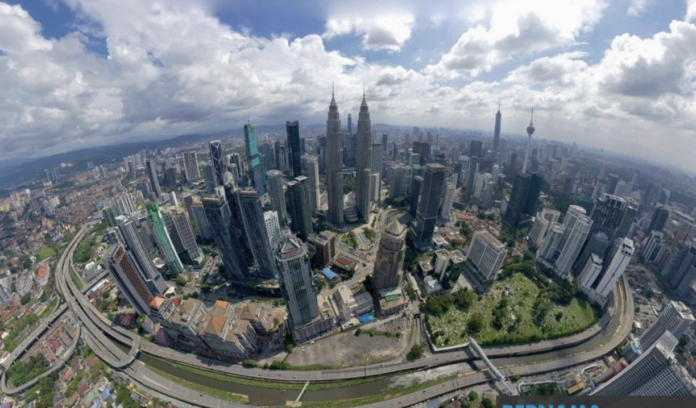KUALA LUMPUR, Jan 30 – Despite the challenges posed by ongoing geopolitical issues and economic risks, Malaysia is uniquely positioned to punch above its weight, as it did in the past, said Deputy Prime Minister Datuk Seri Fadillah Yusof, who is also the Energy Transition and Public Utilities Minister.
He noted that 2024 may yet be another unpredictable year, with unrest and conflicts in Europe and the Middle East, and that it is hard not to be concerned about their far-reaching effects.
“There is also a lot of talk about political changes around the world and it is interesting to see how these might play out. People are also worried about high interest rates which affect the cost of living. We will see how these impact the global economy as the year progresses.
“I believe there will be a big focus on the United States (US) and China relations. As their economies are huge, whatever happens there can sway things globally,” he said in a keynote address at the 2024 Global Economic and Strategic Outlook Forum jointly organised by KSI Strategic Institute for Asia Pacific, the Economic Club of Kuala Lumpur, and the World Digital Chamber.
In his speech, Fadillah also pointed out that the world is witnessing climate change in action, the geopolitical complexity of various events of late, the US-China trade wars, the COVID-19 pandemic, Russia’s actions in Ukraine, and the Gaza conflict.
“All these things are piling up and creating more uncertainty, which is difficult to fathom.
“My political observation is that there are many interesting elections around the world this year, such as the US presidential race with Joe Biden and possibly Donald Trump in the mix. Then there is India where Narendra Modi is seeking another term, and Taiwan’s new President-elect who is pro-US and (this will) most certainly affect the US-China relations.
“Nearer to us is Indonesia’s election which is another interesting one, with the new president succeeding President Jokowi,” he said.
Despite these potential issues and uncertainties, he noted that he is rather optimistic. Despite a tough 2023, Malaysia managed to avert a recession and mitigate inflation and this gave the people hope.
For 2024, he said Malaysia’s economy is expected to grow healthily between 4 and 5 per cent, as forecasted by the Finance Ministry.
He also noted that the government is taking steps to reduce fuel subsidies and tweak fuel prices to keep inflation in check. Additionally, the job market is strong, supported by a positive business outlook, low unemployment, and steady increases in real wages.
“The government continuously provides substantial fiscal support with a development expenditure allocation of RM90 billion in Budget 2024. Our focus areas include industrial development, green investments, infrastructure, and public utility enhancements,” he said.
On another note, he highlighted that effective investment strategies have paid off, and based on the January-September 2023 data, had attracted RM225 billion in investments, a 6.6 per cent increase from the same period a year ago.
These investments were from 3,949 projects and they are expected to create 89,495 new jobs, reinforcing Malaysia’s strong performance and position in services, manufacturing, and primary industries, he said.
The implementation of key strategic plans like the Madani Economy, the New Industrial Master Plan 2030, the National Energy Transition Roadmap, and the mid-term review of the 12th Malaysia Plan will further catalyse both foreign direct investment and domestic direct Investment in 2024, he said.
Meanwhile, bolstered by the political stability, as evidenced by the government’s two-thirds majority in Parliament, he said Malaysia is exceptionally well-positioned for a prosperous future as this allows the government to engage in strategic planning, implement robust economic policies, and nurture a dynamic, resilient economy.
On another note, he said Malaysia reaffirmed its commitment to be carbon neutral by 2050. It aims to reduce greenhouse gas emissions by 45 per cent by 2030 in line with the Paris Agreement.
This ambitious goal is being pursued through the National Energy Transition Roadmap and the New Industrial Master Plan to ensure a just and inclusive transition towards a sustainable low-carbon economy, he said.
“As a Sarawakian, please allow me to briefly mention that Sarawak is leading Malaysia’s charge against climate change. The historic Environment Bill passed in November last year makes Sarawak the first in the country to legislate such proactive measures.
“This bill is not just a plan but an actionable path forward in setting a rigorous standard for businesses in emissions reporting and paving the way for green energy advancements and sustainable development. I am hopeful when Sarawak moves, Malaysia will also move,” he said.
















